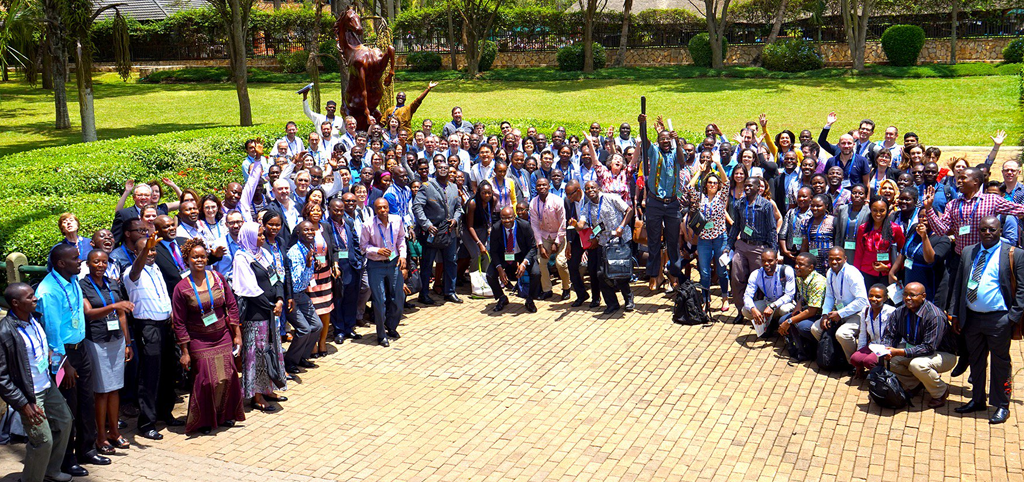The Keystone Symposia ‘Malaria: from Innovation to Eradication’ Concluded with an Emphasis on Surveillance and Equity
The event, organized in collaboration with MESA, took place in Kampala, Uganda, encouraging the participation of many scientists from the region
27.02.2017
Last week, the Keystone Symposia on ‘Malaria: From Innovation to Eradication’ took place in Kampala Uganda (February 19 to 23). The event, organized in collaboration with the Malaria Elimination Scientific Alliance (MESA) and with the participation of several ISGlobal researchers, featured exciting new results on parasite and vector biology, promising new tools including drugs and vaccines, and major challenges in surveillance and health systems for malaria elimination. Reservoirs, responsive surveillance, tailored interventions and the dynamic nature of the disease as parasites and vectors continue to adapt to our interventions, were recurrent issues. This news piece summarizes some of the key points, particularly from the ISGlobal presenters.
During the pre-meeting workshop with the 55 Travel Awardees supported by the Bill and Melinda Gates Foundation plus the more than 40 invited Ugandan scientists, a great number of questions and discussion followed the lectures by three scientists (including Krijn Paaijmans, ISGlobal) who gave an overview of their field.
The symposia officially kicked off on Monday, February 20, with an overview from the director of the WHO Global Malaria Programme and former director of ISGlobal, Pedro Alonso, who underlined that, despite great progress, some countries are lagging behind in reducing disease mortality and morbidity. One of the key questions discussed that day was whether and how to tackle the asymptomatic reservoir. Ana M. Fonseca (ISGlobal) discussed how levels of malaria-specific antibodies in pregnant women can reflect changes in parasite exposure in the population.
The next day focused on how to combine existing interventions and tailor them to achieve the maximum impact in a specific setting. Mass and focal drug administration strategies were compared across different settings (Caterina Guinovart, PATH and ISGlobal). The malaria elimination efforts going on in Zambia highlight the key role of case reporting by community health workers. Studies in Tanzania, where the use of cartoons and posters increased the access to health care, underline the need to understand the community’s needs. One inspiring example is Sri Lanka, where malaria elimination has been achieved but national surveillance must be maintained to avoid its reintroduction.
Wednesday focused on new tools in prevention, treatment and vector control. A drug candidate that inhibits the PI4K kinase of both P. vivax and P. falciparum is in the pipeline, as well as the sporozoite-based candidate vaccine with promising protective efficacy results. Pre-clinical results for a new vaccine target antigen expressed on all life cycles of the parasite, GPI, were discussed, as well as clinical phase III data on antibody responses induced by the RTS,S vaccine (Itziar Ubillos, ISGlobal). In terms of vector control, K. Paaijmans (ISGlobal) emphasized the responsibility of entomologists in ensuring good data quality to maximize the cost-benefit of insecticide spraying interventions.
The last day featured exciting new science, including a promising pan-malaria transmission blocking vaccine based on antibodies to a mosquito midgut antigen. The epigenetic basis of parasite adaptation to selective pressures was discussed by Alfred Cortés (ISGlobal), as was the use of genetic barcoding of parasites to follow transmission patterns and sources in elimination settings. One major conclusion of the event is that elimination will only go forward if rapid and responsive surveillance systems are established and research in this area is pursued. In his keynote address Marcel Tanner, one of the scientific organizers, stressed the need to achieve “equity effectiveness”.
From over 200 symposia attendees, more than half are working in Africa. The scientific organizers highlighted the excellent discussion and questions by the young scientists and announced their goal for a future Keystone Symposia on malaria elimination and eradication in Asia.
To read the daily blog of the Keystone Symposia on Malaria: From Innovation to Eradication, click here.



